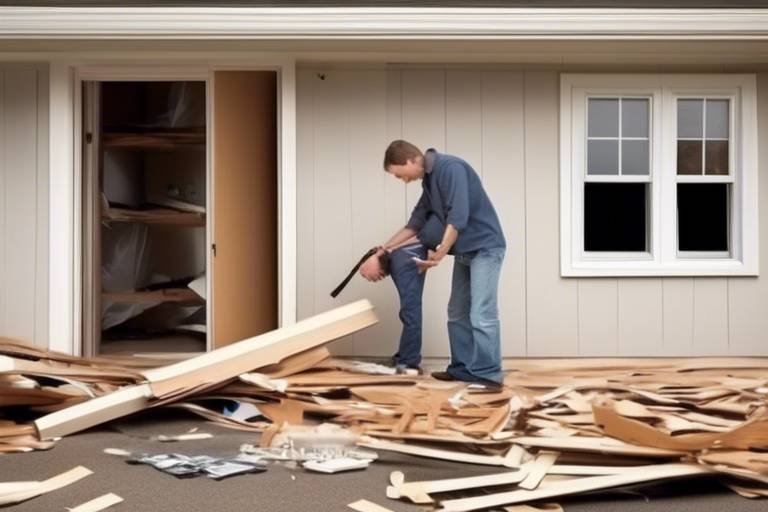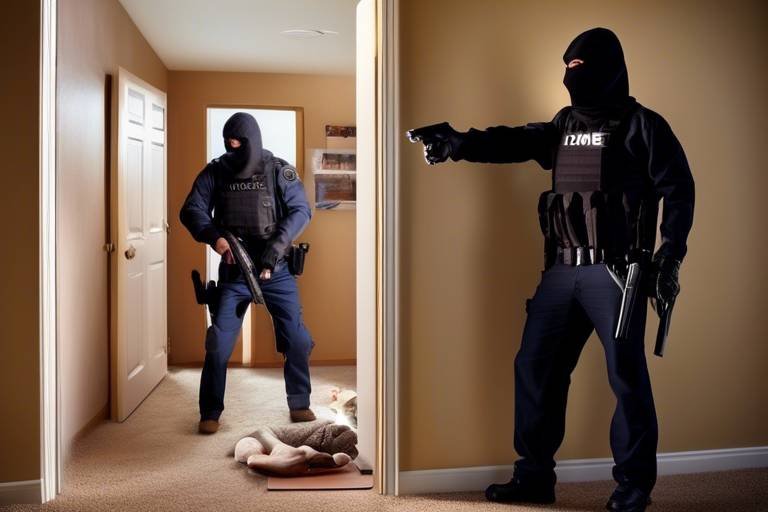Real Estate Safety - Protecting Your Property
When it comes to real estate, safety is not just a luxury; it's a necessity. Protecting your property goes beyond just having a sturdy door or a reliable lock. It involves a comprehensive approach that encompasses physical security measures, legal protections, and proactive maintenance strategies. Think of your real estate investment as a treasure chest; without the right safeguards, it’s vulnerable to theft, damage, and loss. This article will explore essential strategies for safeguarding your real estate investments, ensuring that your properties remain safe and secure.
Understanding the significance of property security is crucial for homeowners and investors alike. Imagine investing your hard-earned money into a property, only to find it compromised due to inadequate security measures. The potential risks can be staggering, including theft, vandalism, and even legal liabilities. Not only can these incidents lead to financial loss, but they can also create emotional distress. It’s essential to recognize that a secure property enhances your peace of mind and boosts the overall value of your investment. So, why take the chance? Investing in security today can save you from headaches tomorrow.
Implementing physical security measures is vital for protecting your property. Think of these measures as the first line of defense against potential threats. From surveillance systems to access controls and perimeter defenses, there are various options available that can significantly enhance the safety of your property. Each layer of security adds complexity for potential intruders, making it less likely for them to target your property. So, let’s dive into some of these essential components.
Modern surveillance systems play a key role in property safety. They act as both a deterrent and a means of monitoring activities around your property. With advancements in technology, you can now choose from a variety of cameras, each designed to meet specific needs. Whether it's high-definition cameras that capture every detail or night vision cameras that keep an eye on your property in the dark, the options are plentiful. Proper placement is crucial; consider positioning cameras at entry points and blind spots to maximize coverage. Wouldn’t it be comforting to know that you can keep an eye on your property from anywhere in the world?
Selecting the appropriate cameras for your property is essential. Factors like resolution, night vision capabilities, and connectivity options should be taken into account. For instance, a camera with a higher resolution will provide clearer images, which can be critical in identifying intruders. Additionally, consider whether you want a wired or wireless system; wireless options can offer more flexibility in terms of placement. Investing in the right surveillance system can significantly bolster your property’s security.
Effective monitoring and alert systems can provide peace of mind. Setting up alerts for unusual activity can help you respond quickly to potential threats. Many modern systems allow for remote monitoring through your smartphone, meaning you can check in on your property anytime, anywhere. Imagine being on vacation and receiving an alert about unusual movement at your property; wouldn’t you want to know what’s happening? This level of awareness can make all the difference in preventing incidents before they escalate.
Access control systems are crucial for restricting entry to your property. Think of them as gatekeepers that ensure only authorized individuals can access your premises. Options like keyless entry systems and security gates can greatly enhance safety. Keyless entry systems eliminate the need for physical keys, which can be lost or copied, while security gates provide a physical barrier against unauthorized access. By implementing these systems, you not only protect your property but also create a sense of security for tenants or guests.
Understanding legal protections is essential for safeguarding your investment. Just as you would secure your property physically, you should also ensure it is legally protected. This includes exploring various insurance options, liability waivers, and tenant agreements that can shield you from potential legal issues. A well-informed property owner is a protected property owner. So, let’s break down these legal protections.
Proper insurance coverage can mitigate financial losses due to unforeseen events. From natural disasters to theft, having the right insurance policy can save you a significant amount of money. There are different types of insurance policies available for real estate owners, including property insurance, liability insurance, and even specialized coverage for rental properties. Understanding your options can help you choose the best policy for your needs.
Clear tenant agreements can help manage risks and liabilities. A well-drafted tenant agreement should outline essential clauses, such as maintenance responsibilities, security deposits, and procedures for handling damages. This not only protects you legally but also sets clear expectations for your tenants. Think of it as a safety net; when both parties understand their responsibilities, the likelihood of disputes decreases significantly.
Regular maintenance is key to preventing safety hazards. Just like a car needs regular oil changes, your property requires routine inspections and upkeep to ensure it remains safe and secure. Neglecting maintenance can lead to larger issues down the road, which can compromise the safety of your tenants and the integrity of your investment. So, what should you focus on? Let’s explore some proactive maintenance practices.
Conducting routine inspections can identify potential issues before they escalate. Regular checks can help you spot problems like water leaks, electrical issues, or structural damage. But how often should you conduct these inspections? Ideally, a thorough inspection should occur at least once a year, with more frequent checks for rental properties. By staying proactive, you can address minor issues before they become major headaches.
Timely repairs are crucial for maintaining property safety. Addressing common maintenance tasks, such as fixing broken locks, repairing lighting, and ensuring proper drainage, can prevent accidents and enhance the overall security of your property. Think of these tasks as routine check-ups for your investment; taking care of them regularly will keep your property in top shape and safeguard your investment for years to come.
Q: What are the most effective security measures for rental properties?
A: The most effective measures include installing surveillance cameras, utilizing keyless entry systems, and ensuring proper lighting around the property.
Q: How often should I conduct property inspections?
A: Ideally, property inspections should be conducted at least once a year, with more frequent checks for rental properties to ensure safety and maintenance.
Q: What type of insurance do I need for my rental property?
A: You should consider property insurance, liability insurance, and possibly additional coverage specific to rental properties to protect against various risks.
Q: How can I ensure my tenant agreements protect me legally?
A: A well-drafted tenant agreement should clearly outline responsibilities, security deposits, and procedures for handling damages to protect you from potential legal issues.
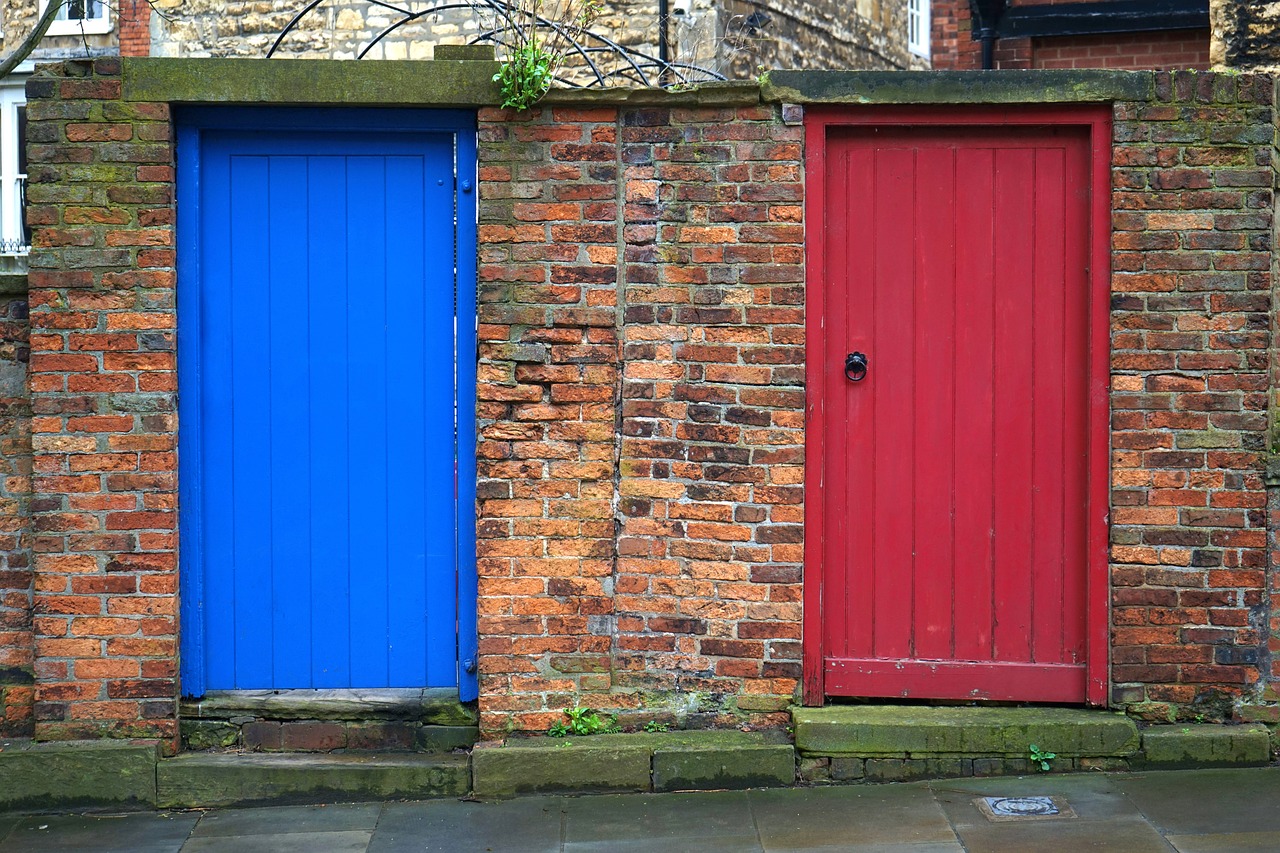
Importance of Property Security
When it comes to real estate, the importance of property security cannot be overstated. Imagine investing your hard-earned money into a property only to see it compromised due to inadequate security measures. The risks are not just about theft; they encompass a wide range of potential issues that can affect your financial stability and peace of mind. In today’s world, where crime rates can fluctuate and unpredictable events can occur, having a solid security strategy is essential for homeowners and investors alike.
Consider this: a lack of proper security can lead to significant financial losses, legal troubles, and emotional distress. Properties that are not adequately protected are often targets for vandalism, burglary, and even more severe crimes. The consequences of such incidents can be devastating, resulting in costly repairs, increased insurance premiums, and a tarnished reputation. Not to mention, the emotional toll it takes on individuals who feel unsafe in their own homes or properties.
Moreover, property security is not just about preventing crime; it’s also about protecting your investment. A well-secured property maintains its value better than one that is frequently compromised. Potential buyers or renters are more likely to be attracted to a property that offers a sense of safety and security. Therefore, investing in security measures is not merely an expense; it’s a strategic move that can enhance your property’s marketability.
Here are some key factors that underscore the importance of property security:
- Insurance Benefits: Properties with robust security measures often benefit from lower insurance premiums. Insurers recognize that the risk of loss is diminished, which can lead to significant savings over time.
- Peace of Mind: Knowing that your property is secure allows you to focus on other aspects of life without the constant worry of potential threats. It’s a sense of relief that every property owner deserves.
- Community Safety: A secure property contributes to the overall safety of the neighborhood. When properties are well-protected, it discourages criminal activity, fostering a safer environment for everyone.
In summary, the importance of property security is multifaceted. It goes beyond just preventing theft or damage; it encompasses financial stability, emotional well-being, and community safety. Investing in effective security measures is a proactive step that every property owner should consider seriously. After all, a secure property is not just a physical space; it’s a sanctuary where you can live, work, and thrive without fear.
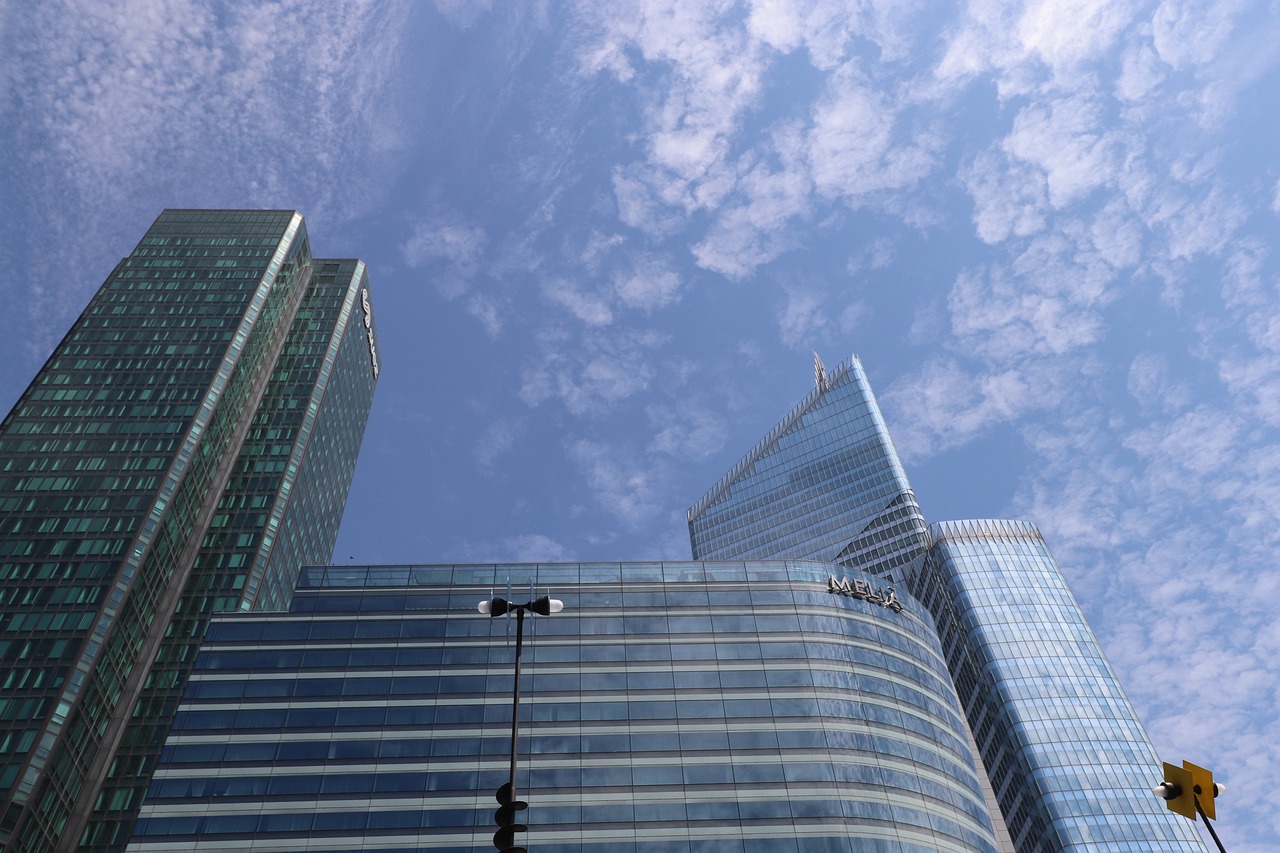
Physical Security Measures
When it comes to safeguarding your property, implementing is not just a good idea; it's essential. Think of your property as a fortress, and every fortress needs robust defenses to keep intruders at bay. In a world where crime can happen in the blink of an eye, investing in security measures can save you from heartache and financial loss. But what exactly can you do to fortify your real estate investments? Let's dive into some effective strategies that can enhance the safety of your property.
First up, one of the most effective ways to deter criminal activity is by installing surveillance systems. These systems are like having a pair of watchful eyes on your property 24/7. Imagine a potential intruder approaching your home only to see a camera staring right at them; that can be a strong deterrent! Modern surveillance systems come equipped with various features that make them incredibly effective. From high-resolution cameras that capture every detail to night vision capabilities that ensure visibility in low light, the right surveillance setup can make a world of difference.
Now, let's break down some of the key elements of surveillance systems. For starters, the placement of your cameras is crucial. You want to ensure that they cover all vulnerable areas, such as entrances, driveways, and backyards. A well-planned layout can significantly enhance your property's security. Moreover, many modern systems allow for remote monitoring, meaning you can keep an eye on your property from anywhere in the world. This feature is especially handy for frequent travelers or those with multiple properties.
When selecting cameras, consider factors like resolution, night vision, and connectivity options. For instance, a camera with high resolution will provide clearer images, making it easier to identify faces or license plates. Night vision is another critical aspect; after all, most burglaries occur under the cover of darkness. Connectivity options, such as Wi-Fi or wired connections, can also affect your system's reliability. By carefully choosing the right cameras, you can ensure that your property is well-protected.
Effective monitoring and alert systems can provide peace of mind that is worth its weight in gold. Imagine receiving an alert on your phone whenever unusual activity is detected at your property. This instant notification allows you to act quickly, whether that means contacting the authorities or checking in on your property via live feed. Setting up these alerts is generally straightforward, and many surveillance systems come with user-friendly apps that make monitoring a breeze.
Another critical component of physical security is implementing access control systems. These systems are designed to restrict entry to your property, ensuring that only authorized individuals can gain access. Think of them as the gatekeepers of your fortress. Options range from traditional locks to advanced keyless entry systems. Keyless entry systems, for instance, allow you to control access remotely, meaning you can grant entry to trusted individuals even when you're not around.
Moreover, security gates can serve as a formidable barrier against unauthorized access. They not only enhance the aesthetic appeal of your property but also provide an additional layer of security. By combining surveillance systems with robust access control measures, you create a multi-layered defense strategy that significantly reduces the risk of intrusion.
In summary, physical security measures are a vital investment for any property owner. By implementing a combination of surveillance systems and access control measures, you can create a secure environment that protects your investment and provides peace of mind. Remember, in the realm of real estate, an ounce of prevention is worth a pound of cure!
- What is the best type of surveillance camera for residential properties? High-resolution cameras with night vision capabilities are generally recommended for residential properties to ensure clear images in various lighting conditions.
- How often should I conduct security assessments of my property? It’s advisable to conduct security assessments at least once a year, but more frequent checks may be necessary depending on the area and any recent incidents.
- Can I monitor my security system remotely? Yes, many modern surveillance systems come with remote monitoring capabilities, allowing you to check in on your property from anywhere via your smartphone or computer.
- Are access control systems worth the investment? Absolutely! Access control systems provide an additional layer of security by restricting entry to only authorized individuals, making them a wise investment for property safety.
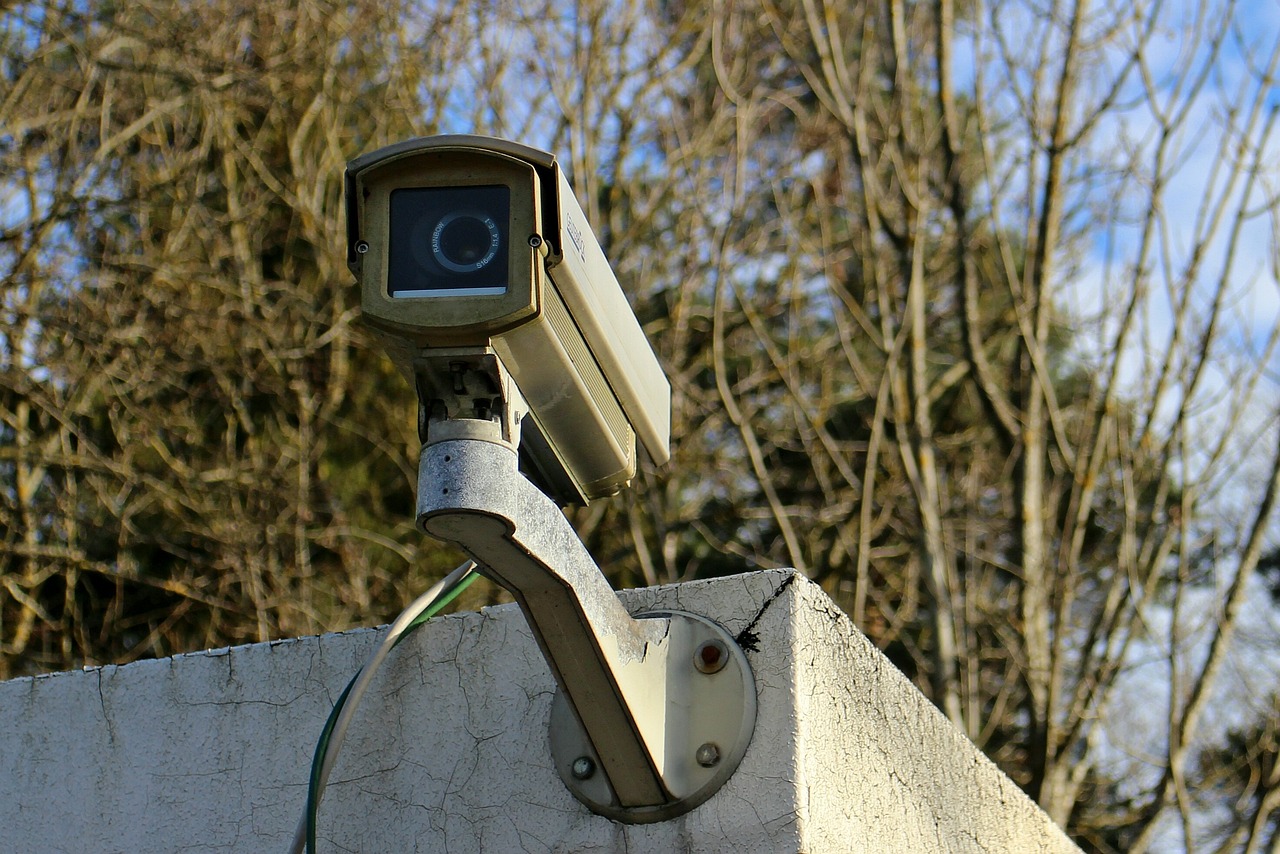
Surveillance Systems
In today's world, have become a cornerstone of property security, acting as the eyes and ears of your premises. Imagine being able to monitor your property 24/7, even when you're miles away. With the right surveillance setup, this is not just a dream but a reality! These systems not only help deter potential criminals but also provide invaluable evidence in case of any incidents. When considering the installation of a surveillance system, it's essential to understand the different types available and how they can best serve your needs.
Modern surveillance systems come equipped with a variety of features that can significantly enhance your property’s safety. For instance, high-definition cameras can capture clear images, while night vision capabilities allow for monitoring in low-light conditions. Additionally, many systems now offer smart technology, enabling you to access camera feeds directly from your smartphone. This flexibility means that you can keep an eye on your investment no matter where you are, providing peace of mind that is worth its weight in gold.
When selecting surveillance cameras for your property, consider factors such as:
- Resolution: Higher resolution cameras provide clearer images, making it easier to identify individuals.
- Night Vision: Look for cameras that can capture footage in low-light conditions, ensuring that your property is monitored around the clock.
- Connectivity: Choose cameras that can connect to your Wi-Fi, allowing for easy remote access and monitoring.
Placement of your cameras is equally important. Strategic positioning can maximize coverage and minimize blind spots. For example, installing cameras at entry points—like doors and garages—can capture crucial footage of anyone entering or exiting your property. Additionally, consider placing cameras in high-traffic areas, such as driveways and backyards, to monitor all angles of your property effectively.
Another vital aspect of surveillance systems is the monitoring and alert features. Many modern systems allow you to set up alerts for unusual activity. This means you can receive notifications directly to your phone if something suspicious occurs, enabling you to react promptly. Furthermore, remote monitoring options allow you to view live feeds or recorded footage from anywhere, giving you the ultimate control over your property’s security.
In summary, investing in a robust surveillance system is a proactive step toward protecting your property. By understanding the types of cameras available, their optimal placement, and leveraging modern technology for monitoring, you can significantly enhance the security of your real estate investment. Remember, a well-monitored property is a less attractive target for criminals, and that alone can save you from potential headaches down the road.

Choosing the Right Cameras
When it comes to safeguarding your property, selecting the right surveillance cameras is like choosing the right armor for a knight—it's essential for protection. The market is flooded with options, and navigating through them can feel overwhelming. However, understanding key features can simplify your decision-making process and enhance your property's security. Start by considering resolution. High-definition cameras provide clearer images, making it easier to identify faces or license plates. A camera with at least 1080p resolution is recommended for most residential properties.
Another crucial factor is night vision. Security threats don't adhere to daylight hours, so investing in cameras that can capture clear footage in low-light conditions is paramount. Look for infrared (IR) capabilities or color night vision features, which can significantly improve visibility during the night.
Connectivity options also play a vital role in your camera selection. You have two primary choices: wired and wireless systems. Wired cameras are typically more reliable and less susceptible to interference, but installation can be more complex and costly. On the other hand, wireless cameras offer flexibility and easier installation, making them ideal for DIY enthusiasts. However, ensure that your Wi-Fi signal is strong enough to support these devices, as they rely on stable internet connectivity.
Consider the field of view of the cameras as well. A wide-angle lens can cover more area, reducing the number of cameras needed around your property. For larger spaces, you might also want to think about cameras that can pan, tilt, and zoom (PTZ). These features allow you to adjust the camera's view remotely, providing greater coverage and flexibility in monitoring your surroundings.
Lastly, don’t underestimate the importance of storage options. Some cameras come with cloud storage, while others use local storage methods, such as SD cards. Cloud storage can provide the advantage of accessing footage from anywhere, but it often comes with recurring fees. Local storage is a one-time investment but may limit how long you can keep footage. Weigh these options based on your needs and budget.
In summary, choosing the right surveillance cameras involves considering various factors, including resolution, night vision capabilities, connectivity, field of view, and storage options. By carefully evaluating these features, you can ensure that your property is well-protected, giving you peace of mind and security.
- What is the best resolution for security cameras?
1080p is generally recommended for most residential properties, as it provides clear images for identification. - Do I need night vision for my security cameras?
Yes, night vision is crucial for capturing clear footage in low-light conditions, which is when many security incidents occur. - Should I choose wired or wireless cameras?
It depends on your needs; wired cameras are more reliable, while wireless cameras offer easier installation and flexibility. - What is the advantage of cloud storage for security footage?
Cloud storage allows you to access footage remotely and typically provides more storage capacity without the need for physical hardware.

Monitoring and Alerts
In today's fast-paced world, having a reliable monitoring and alert system for your property is not just a luxury—it's a necessity. Imagine being away on vacation, soaking up the sun, when suddenly, you receive an alert on your phone about unusual activity at your home. That sense of security allows you to enjoy your time away without the nagging worry of what might be happening back home. Implementing an effective monitoring system can be the difference between peace of mind and sleepless nights.
So, how do you set up such a system? Start by integrating high-quality surveillance cameras that offer real-time monitoring capabilities. Many modern cameras come equipped with features like motion detection, which can automatically trigger alerts when something out of the ordinary occurs. This means you won’t have to sift through hours of footage; instead, you’ll receive instant notifications, allowing you to respond swiftly to any potential threats.
Another crucial aspect is the ability to monitor your property remotely. With advancements in technology, you can now access live feeds from your cameras right from your smartphone or tablet. This means that whether you’re at work, running errands, or lounging on a beach, you can keep an eye on your property. Some systems even allow you to communicate through the camera, so you can speak to anyone who may be on your property, further enhancing security.
Furthermore, consider integrating your monitoring system with smart home devices. For instance, if your security camera detects movement, it can trigger your smart lights to turn on, creating the illusion that someone is home. This can be particularly effective in deterring potential intruders. Additionally, you can set up alerts for various scenarios, such as:
- Motion detected in restricted areas
- Doors or windows opened unexpectedly
- Smoke or carbon monoxide alarms triggered
Having these alerts set up not only keeps you informed but also allows you to take immediate action, whether that means calling the authorities or simply checking in on your property. The key is to choose a monitoring system that fits your lifestyle and preferences, ensuring that you’re always in the loop about what’s happening at your property.
In conclusion, a robust monitoring and alert system is an indispensable part of safeguarding your real estate investment. By leveraging technology and staying proactive, you can ensure that your property remains secure, allowing you to focus on what truly matters—living your life without constant worry.
- What types of monitoring systems are available? There are various options, including wired and wireless cameras, smart home systems, and professional monitoring services.
- How can I ensure my alerts are reliable? Choose a system with good reviews, and consider one that offers cloud storage and backup options to avoid losing footage.
- Can I monitor my property from anywhere? Yes, most modern systems allow remote access through apps on your smartphone or tablet.
- What should I do if I receive an alert? Assess the situation through your monitoring system, and if necessary, contact local authorities.

Access Control Systems
When it comes to securing your property, are absolutely crucial. Imagine you have a fortress, but without a solid gate or a reliable guard; how safe do you really feel? Access control systems function as the gatekeepers of your real estate, ensuring that only authorized individuals can enter your premises. This not only enhances the overall security of your property but also gives you peace of mind knowing that you have the upper hand in who gets in and who stays out.
There are several types of access control systems available today, each tailored to meet different security needs. For instance, keyless entry systems are becoming increasingly popular due to their convenience and advanced technology. These systems often utilize key fobs, biometric scanners, or even smartphone applications to grant access. Imagine being able to unlock your door with just a touch of your finger or a simple tap on your phone! This not only simplifies the entry process but also eliminates the need for physical keys, which can be lost or stolen.
Another effective option is the installation of security gates. These serve as a physical barrier to deter unauthorized access. Security gates can be automated, allowing for controlled entry and exit. They can be particularly beneficial for properties located in high-crime areas or for those that house valuable assets. Think of a security gate as the moat around your castle—it's an extra layer of protection that can significantly reduce the chances of unwanted intrusions.
To give you a clearer picture, here’s a simple comparison table of some common access control systems:
| Access Control System | Features | Best For |
|---|---|---|
| Keyless Entry | Biometric, RFID, Smartphone | Residential and Commercial |
| Security Gates | Automated, Manual | High-security areas |
| Intercom Systems | Video, Audio | Apartment complexes |
| Access Control Software | Remote Management | Large facilities |
Additionally, integrating monitoring systems with your access control can further enhance security. Imagine being able to see who is at your door before letting them in, or even monitoring access points remotely! This combination of technology not only makes it easier to manage who enters your property but also provides valuable data that can help you identify patterns or potential security breaches.
In conclusion, implementing robust access control systems is a proactive step toward securing your real estate investments. Whether you opt for keyless entry, security gates, or a combination of various systems, the goal remains the same: to protect your property and ensure that your peace of mind is never compromised. After all, in the world of real estate, safety is not just an option; it's a necessity!
- What are the benefits of access control systems?
Access control systems provide enhanced security, convenience, and the ability to monitor who enters your property. - How do keyless entry systems work?
Keyless entry systems use technology such as biometric scanning or RFID to grant access without physical keys. - Can I integrate access control with my existing security systems?
Yes, many access control systems can be integrated with existing surveillance and alarm systems for comprehensive security. - What should I consider when choosing an access control system?
Consider factors like the size of your property, the level of security needed, and your budget.
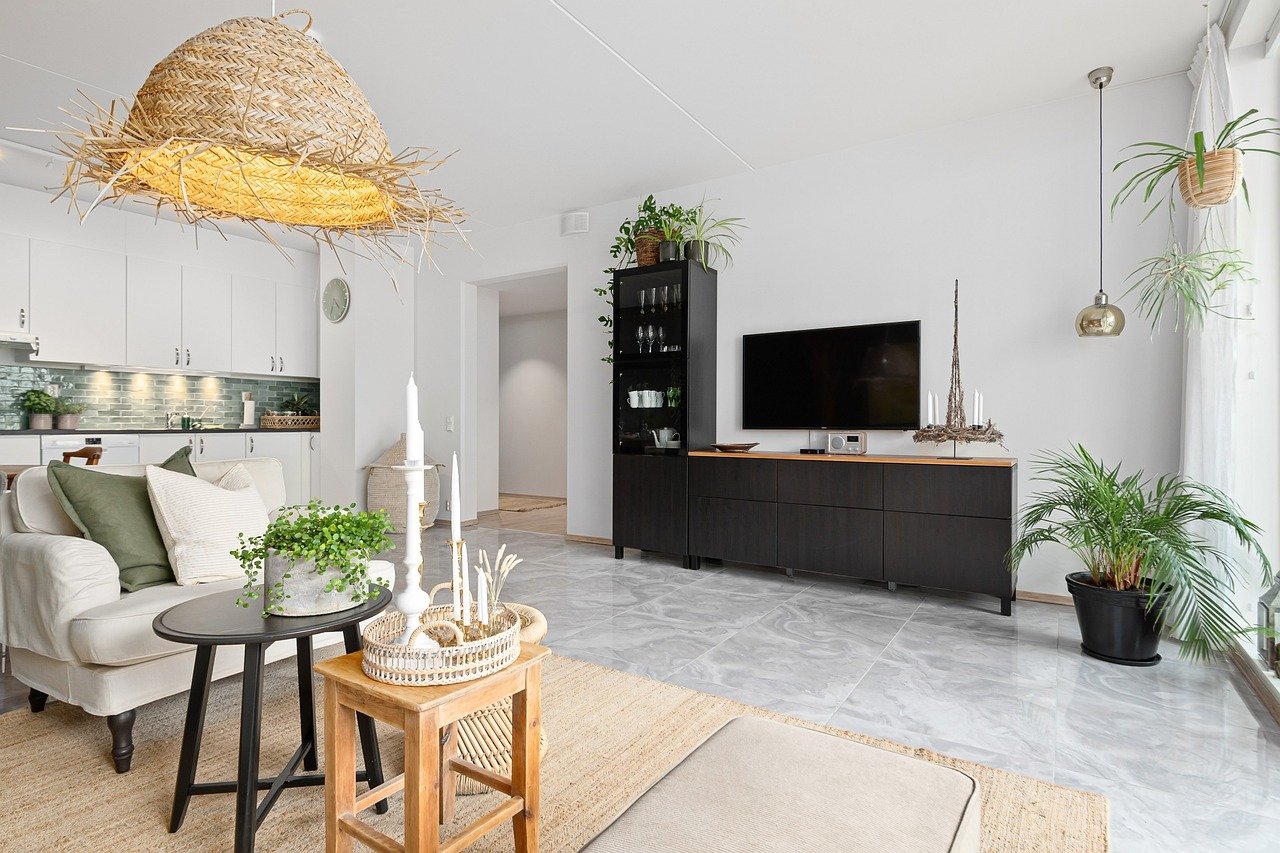
Legal Protections for Property Owners
When it comes to safeguarding your real estate investments, understanding legal protections is absolutely essential. Think of legal protections as the safety net that catches you when unexpected events occur. Without them, property owners can find themselves in precarious situations, facing lawsuits or financial losses that could have been avoided. This section delves into the various legal frameworks and protections available to property owners, ensuring that you not only protect your assets but also your peace of mind.
One of the primary components of legal protection is insurance coverage. Proper insurance can be a lifesaver, especially when dealing with unforeseen events like natural disasters, vandalism, or tenant-related issues. There are several types of insurance policies available, and knowing which one suits your needs can make all the difference. For instance, a landlord insurance policy typically covers property damage, liability claims, and loss of rental income, providing a robust shield against potential financial setbacks.
In addition to insurance, having clear and comprehensive tenant agreements is vital. These agreements serve as legal contracts that outline the responsibilities of both landlords and tenants. By including essential clauses—such as maintenance responsibilities, payment terms, and rules regarding property use—you can significantly reduce your exposure to legal issues. For example, a clause that specifies late payment penalties can encourage timely rent payments, while a clear maintenance clause can help you avoid disputes over who is responsible for repairs.
| Type of Insurance | Coverage Details |
|---|---|
| Landlord Insurance | Covers property damage, liability claims, and loss of rental income. |
| Homeowners Insurance | Protects against damage to your home and personal property. |
| Liability Insurance | Covers legal costs and damages if someone is injured on your property. |
Moreover, understanding your responsibilities as a property owner is crucial. This includes adhering to local laws and regulations, which can vary significantly from one area to another. For instance, some jurisdictions have specific requirements for property maintenance, tenant rights, and eviction processes. By staying informed and compliant, you can avoid legal pitfalls that could jeopardize your investment.
In conclusion, the legal landscape surrounding property ownership can be complex, but it’s essential to navigate it wisely. By investing in the right insurance, drafting clear tenant agreements, and understanding local laws, you create a fortress of protection around your property. This proactive approach not only safeguards your investments but also enhances your reputation as a responsible property owner.
- What types of insurance should I have as a property owner?
It's advisable to have landlord insurance, liability insurance, and possibly homeowners insurance, depending on your specific needs. - How can I ensure my tenant agreements are legally binding?
Consult with a legal professional to draft or review your tenant agreements to ensure they comply with local laws. - What should I do if a tenant refuses to pay rent?
Review your tenant agreement and follow the legal eviction process in your area to address non-payment issues.

Insurance Coverage
When it comes to real estate, is your safety net, providing a crucial layer of protection against unforeseen events that could otherwise lead to significant financial loss. Imagine this: you’ve invested your hard-earned money into a beautiful property, and then, out of nowhere, a natural disaster strikes or a tenant accidentally causes damage. Without the right insurance, you could be left scrambling to cover those costs. So, what types of insurance should you consider to safeguard your investment?
First off, let’s talk about property insurance. This is the bread and butter of real estate protection. It typically covers damages to your property from incidents like fire, theft, or vandalism. However, not all policies are created equal, and it's essential to read the fine print. Some policies might exclude certain types of damage, such as flooding or earthquakes, which means you may need additional coverage for those risks.
Next on the list is liability insurance. This type of coverage protects you in the event that someone is injured on your property and decides to sue you for damages. Think of it as your personal shield against legal battles that can arise from accidents, slip-and-fall incidents, or other mishaps. Having liability insurance can save you from financial ruin if a tenant or visitor claims that your property caused them harm.
Additionally, consider loss of rental income insurance. This policy can be a lifesaver if your property becomes uninhabitable due to a covered event, like a fire or severe storm. It ensures that you continue to receive rental income even when your property is undergoing repairs. This type of coverage can provide peace of mind, knowing you won’t be left without income during tough times.
In the realm of real estate, it’s also wise to explore umbrella insurance policies. These policies offer extra liability coverage that goes beyond the limits of your other insurance policies. For example, if you face a lawsuit that exceeds your liability coverage, an umbrella policy can help cover the excess costs, protecting your assets from being wiped out.
To help you navigate the complexities of insurance coverage, here’s a quick overview of different types of real estate insurance:
| Type of Insurance | Coverage |
|---|---|
| Property Insurance | Covers damage to the property from fire, theft, vandalism, etc. |
| Liability Insurance | Protects against legal claims from injuries on your property. |
| Loss of Rental Income Insurance | Compensates for lost income if the property is uninhabitable. |
| Umbrella Insurance | Provides additional liability coverage beyond other policies. |
In summary, having comprehensive insurance coverage is not just a good idea; it’s a necessity for anyone involved in real estate. It acts as a financial safety net, allowing you to focus on growing your investments rather than worrying about what could go wrong. Always consult with an insurance professional to tailor a policy that meets your specific needs and to ensure your investment is adequately protected.
- What is the most important type of insurance for a property owner? Property insurance is essential as it covers damage to the property itself.
- Do I need liability insurance if I have property insurance? Yes, liability insurance is crucial as it protects against legal claims from injuries on your property.
- How can I determine the right amount of coverage? Assess the value of your property and consult with an insurance agent to determine appropriate coverage limits.
- Is loss of rental income insurance necessary? If you rely on rental income, this coverage can be beneficial in case your property becomes uninhabitable.
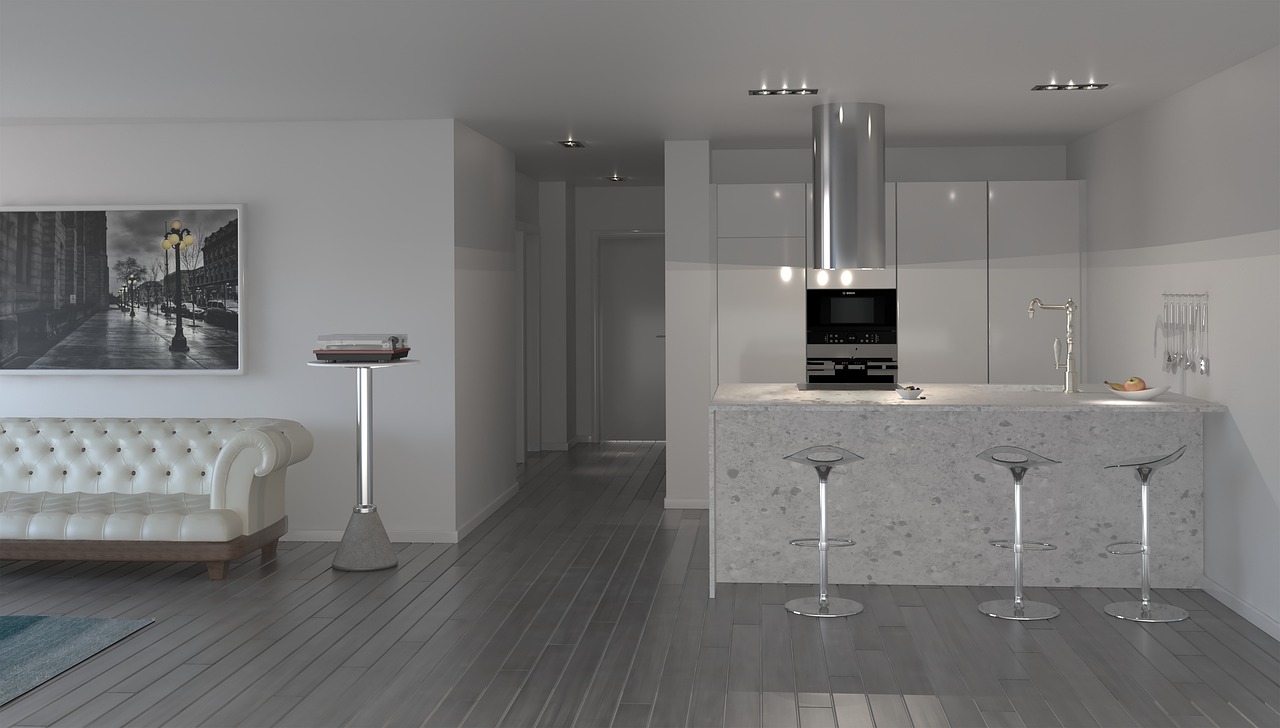
Tenant Agreements and Liabilities
When it comes to real estate, having a solid tenant agreement is like having a sturdy umbrella on a rainy day—it’s essential for protection. A well-drafted tenant agreement not only outlines the expectations and responsibilities of both parties but also serves as a legal shield against potential disputes. Without this crucial document, property owners may find themselves exposed to a myriad of liabilities that could have been easily avoided.
One of the most significant aspects of a tenant agreement is the clear delineation of responsibilities. This includes stipulating who is responsible for maintenance, repairs, and any damages that may occur during the tenancy. For instance, if a tenant accidentally breaks a window, the agreement should specify whether the tenant or the landlord is liable for the repair costs. This clarity helps to minimize misunderstandings and can prevent costly legal battles down the line.
Additionally, including specific clauses related to liabilities can further protect property owners. Here are some key elements that should be considered:
- Security Deposits: Clearly outline the amount and conditions under which the deposit may be withheld at the end of the lease.
- Insurance Requirements: Mandate that tenants obtain renter’s insurance to cover their personal belongings and any potential liabilities.
- Notice Periods: Specify the required notice period for both parties regarding lease termination or renewal, ensuring that both sides are prepared for any changes.
- Pet Policies: Include rules regarding pets, which can often lead to disputes if not clearly defined.
Moreover, it’s crucial to ensure that tenant agreements comply with local laws and regulations. This means staying updated on any changes in housing laws that could affect your rights and responsibilities as a property owner. For example, some regions have specific rules regarding eviction processes or tenant rights that must be adhered to. Failing to comply with these regulations can result in severe repercussions, including financial penalties or loss of rental income.
In summary, a comprehensive tenant agreement is not just a formality; it's a vital tool for safeguarding your investment. By clearly defining responsibilities and liabilities, property owners can create a harmonious rental experience while minimizing risks. Remember, a stitch in time saves nine—investing the effort into a well-crafted agreement can save you from potential headaches in the future.
Q: What is a tenant agreement?
A tenant agreement is a legal document that outlines the terms and conditions of the rental arrangement between the landlord and tenant, including responsibilities, rights, and liabilities.
Q: Why is it important to have a tenant agreement?
A tenant agreement is crucial for protecting both parties' interests, clearly defining responsibilities, and minimizing the risk of disputes or legal issues.
Q: What should be included in a tenant agreement?
Key elements include security deposits, maintenance responsibilities, notice periods, pet policies, and insurance requirements.
Q: Can I change the tenant agreement after it's signed?
Changes can usually be made, but both parties must agree to the modifications, and it’s best to document them in writing.
Q: What happens if a tenant violates the agreement?
Violations can lead to various actions, including warnings, fines, or even eviction, depending on the severity of the breach and local laws.
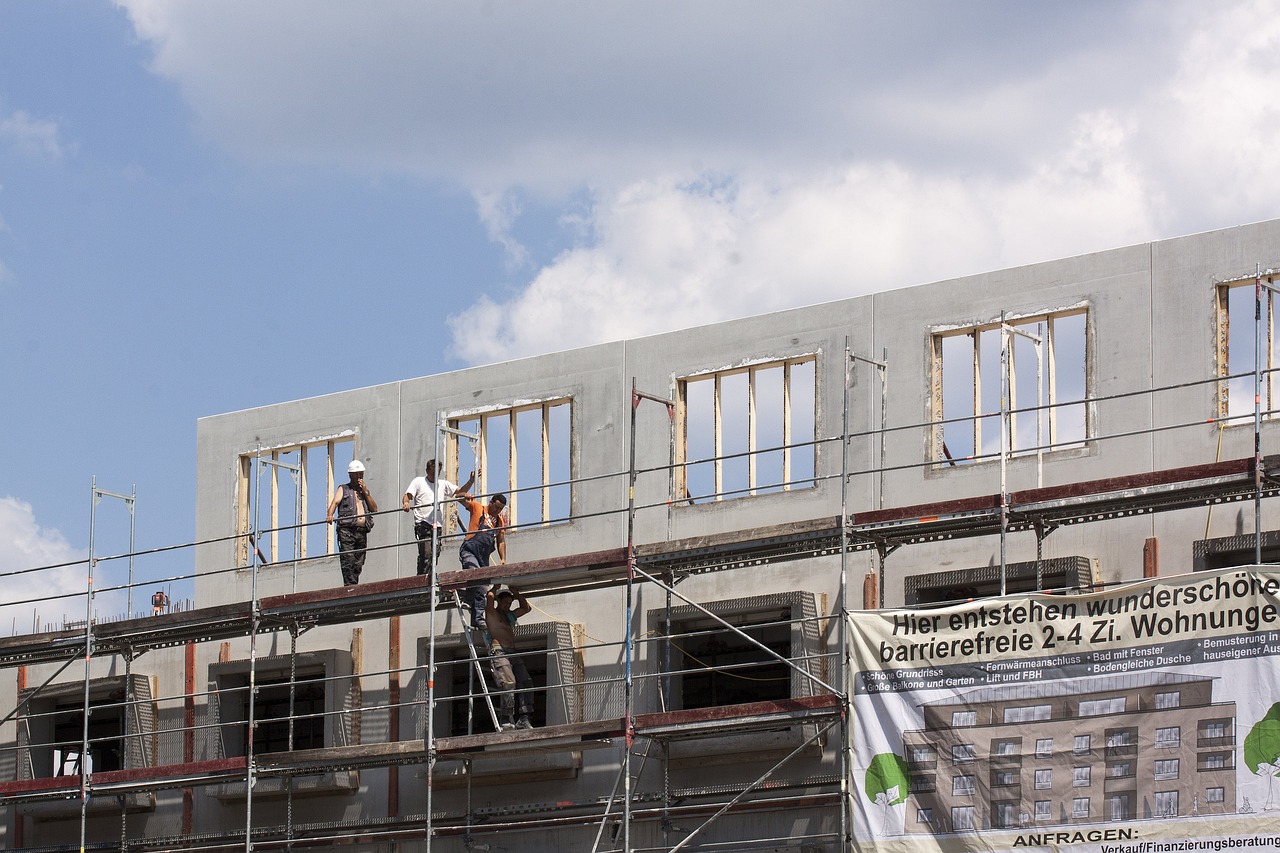
Proactive Maintenance Practices
When it comes to safeguarding your real estate investments, are your best friends. Think of your property as a living organism; just like we need regular check-ups to stay healthy, your property requires consistent care to prevent issues from escalating into costly repairs. By implementing a routine maintenance schedule, you can identify potential hazards before they become major problems, ensuring that your investment remains safe and secure.
One of the most effective ways to maintain your property is through routine inspections. These inspections should cover various aspects of the property, including plumbing, electrical systems, roofing, and landscaping. Regular checks not only help in spotting wear and tear but also allow you to address minor issues before they spiral out of control. For example, a small leak in the roof might seem insignificant at first, but if left unattended, it can lead to extensive water damage and mold growth. By conducting inspections at least twice a year, you can catch these issues early and save yourself from headaches down the line.
In addition to routine inspections, upkeep and repairs play a crucial role in maintaining property safety. It's essential to stay on top of common maintenance tasks such as:
- Changing air filters regularly to ensure proper ventilation.
- Cleaning gutters to prevent water damage.
- Checking smoke detectors and carbon monoxide alarms to ensure they are functioning correctly.
- Maintaining landscaping to prevent pests and ensure safe walkways.
Each of these tasks might seem small, but together they create a robust defense against potential hazards. Imagine your property as a fortress; every brick counts. If one brick is loose, it can compromise the entire structure. Therefore, timely repairs are not just about aesthetics; they are about safety and security.
Another aspect of proactive maintenance is seasonal preparation. Different seasons bring different challenges. For instance, in winter, ensuring that your heating system is functioning properly can prevent pipes from freezing and bursting. In the fall, it's wise to check your roof for any damage before the winter storms hit. By preparing your property for the changing seasons, you can avoid many common pitfalls.
Moreover, keeping a detailed maintenance log can be incredibly beneficial. This log should include dates of inspections, repairs made, and any issues noted. This not only helps you stay organized but also provides a comprehensive history of your property's condition, which can be invaluable when it comes time to sell or rent out the property. Potential buyers or tenants will appreciate a well-maintained property, and it can even enhance your property's market value.
In conclusion, proactive maintenance practices are not just an option; they are a necessity for any real estate owner who wants to protect their investment. By conducting routine inspections, staying on top of upkeep and repairs, preparing for seasonal changes, and maintaining a detailed log, you can ensure that your property remains a safe haven for you and your tenants. Remember, a little effort today can save you a lot of trouble tomorrow!
Q: How often should I conduct routine inspections of my property?
A: It's recommended to conduct inspections at least twice a year, but more frequent checks may be necessary depending on the property's age and condition.
Q: What are some common maintenance tasks I should prioritize?
A: Key tasks include changing air filters, cleaning gutters, checking smoke detectors, and maintaining landscaping to prevent hazards.
Q: How can I prepare my property for seasonal changes?
A: Ensure heating systems are functioning in winter, inspect roofs in fall, and check for any weather-related vulnerabilities.
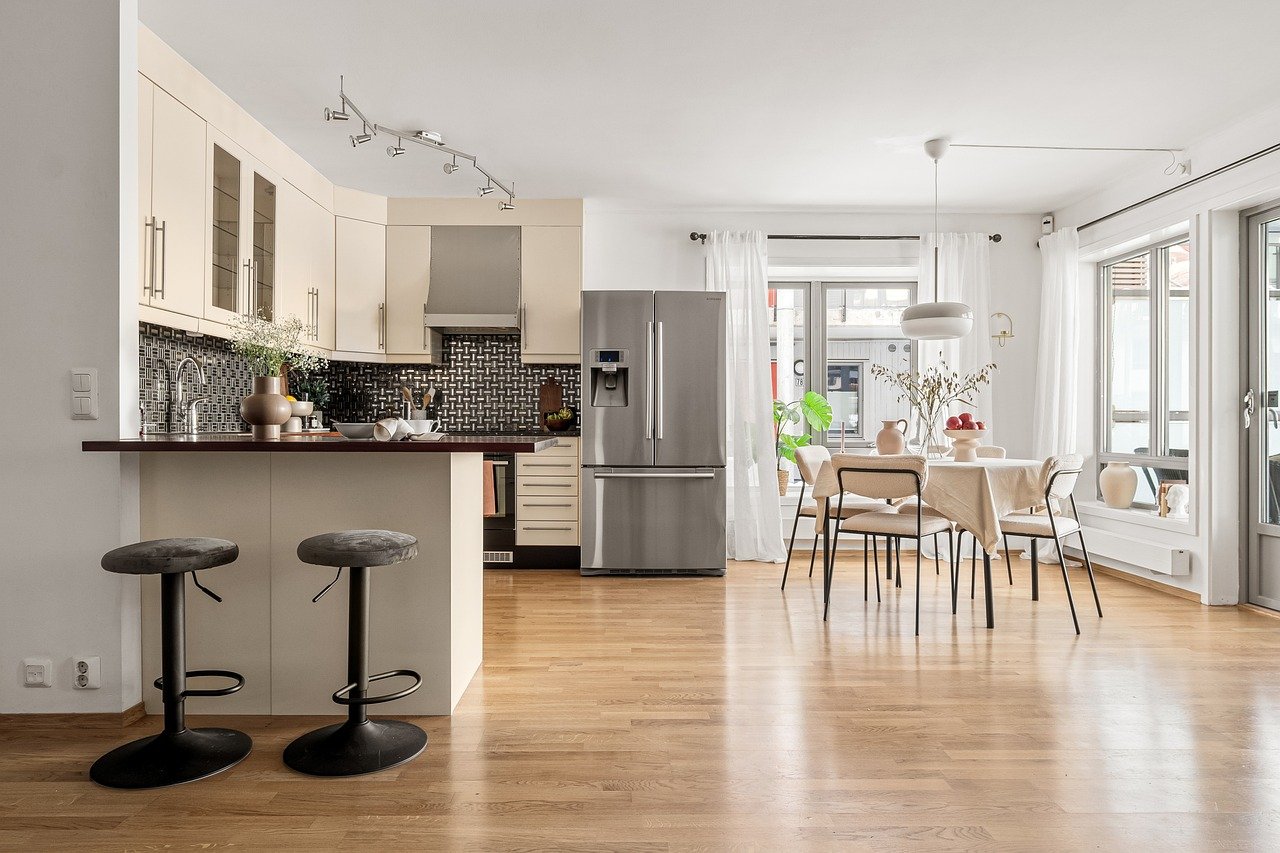
Routine Inspections
Conducting is crucial for maintaining the safety and integrity of your property. Think of it like a regular health check-up for your home or investment; just as you wouldn’t ignore your health, you shouldn't overlook your property’s condition. By performing these inspections, you can identify potential issues before they escalate into costly repairs or safety hazards. So, what exactly should you be looking for during these inspections?
First and foremost, it’s essential to check the exterior of your property. Look for signs of wear and tear, such as peeling paint, cracked siding, or damaged roofing. These elements not only affect the aesthetic appeal of your property but can also lead to more significant problems like water damage or pest infestations. Regularly inspecting the foundation for cracks or shifts can save you from major structural issues down the line.
Next, turn your attention to the interior of your property. This includes checking for leaks under sinks, inspecting the condition of electrical outlets, and ensuring that smoke detectors and carbon monoxide detectors are functioning correctly. Did you know that a faulty detector can be a serious safety risk? That's why maintaining these devices is non-negotiable.
It’s also wise to establish a routine schedule for these inspections. Depending on the age and condition of your property, you might want to conduct inspections monthly, quarterly, or bi-annually. For example, if you own a rental property, a quarterly inspection might be ideal to ensure that both the property and your tenants are safe. Documenting your findings can help you track any recurring issues and provide a timeline for repairs.
To make these inspections more effective, consider creating a checklist. Here’s a simple example of what your checklist might include:
- Exterior Walls: Check for cracks, peeling paint, or signs of moisture.
- Roof: Inspect shingles, gutters, and downspouts for damage.
- Foundation: Look for cracks or signs of settling.
- Plumbing: Check for leaks under sinks and around toilets.
- Electrical: Test smoke alarms and check outlets for damage.
By following a structured approach to your routine inspections, you can proactively address issues before they become serious problems. Remember, an ounce of prevention is worth a pound of cure, especially when it comes to protecting your property investment.
Q: How often should I conduct routine inspections?
A: The frequency of inspections can vary based on the age and condition of your property. Generally, properties should be inspected at least twice a year, but older homes may require more frequent checks.
Q: What should I do if I find a problem during an inspection?
A: Document the issue and prioritize it based on severity. For minor issues, you may be able to handle repairs yourself, but for significant problems, it’s best to consult a professional.
Q: Can I hire someone to conduct inspections for me?
A: Yes, many property management companies offer inspection services. This can be a convenient option if you lack the time or expertise to perform inspections yourself.
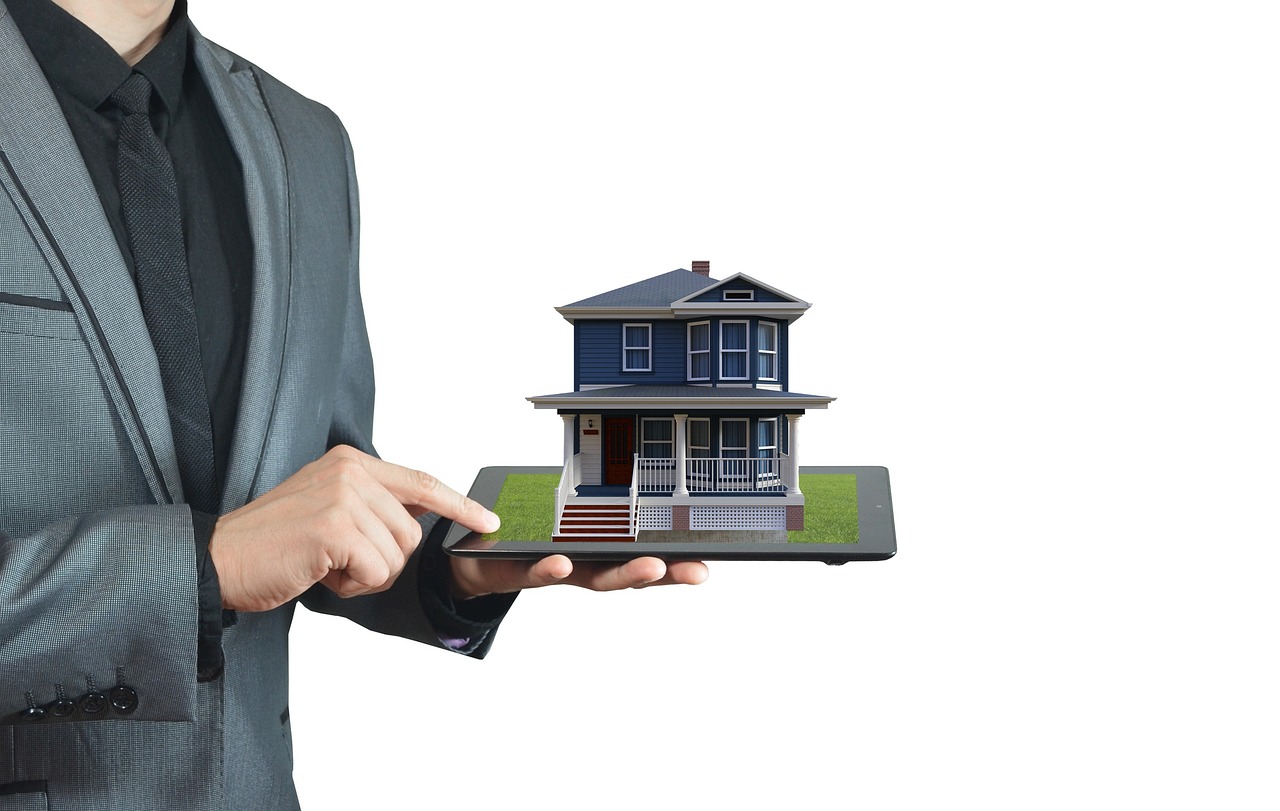
Upkeep and Repairs
This article explores essential strategies for safeguarding your real estate investments, focusing on physical security measures, legal protections, and proactive maintenance to ensure your properties remain safe and secure.
Understanding the significance of property security is crucial for homeowners and investors. This section highlights the potential risks and consequences of inadequate security measures in real estate.
Implementing physical security measures is vital for protecting your property. This section discusses various options, including surveillance systems, access controls, and perimeter defenses that can enhance safety.
Modern surveillance systems play a key role in property safety. This subheading delves into the types of cameras available, their placement, and how they deter criminal activity.
Selecting the appropriate cameras for your property is essential. This part examines factors like resolution, night vision, and connectivity options to ensure optimal security.
Effective monitoring and alert systems can provide peace of mind. This section covers how to set up alerts for unusual activity and the importance of remote monitoring.
Access control systems are crucial for restricting entry to your property. This subheading outlines various systems, such as keyless entry and security gates, to enhance safety.
Understanding legal protections is essential for safeguarding your investment. This section discusses insurance options, liability waivers, and tenant agreements that can protect property owners.
Proper insurance coverage can mitigate financial losses due to unforeseen events. This part explores different types of insurance policies available for real estate owners.
Clear tenant agreements can help manage risks and liabilities. This section discusses essential clauses that protect property owners from potential legal issues.
Regular maintenance is key to preventing safety hazards. This section emphasizes the importance of routine inspections and upkeep to ensure your property remains safe and secure.
Conducting routine inspections can identify potential issues before they escalate. This subheading discusses what to look for and how often inspections should occur.
When it comes to maintaining a property, are non-negotiable. Think of your property as a living organism; it requires constant care and attention to thrive. Just like you wouldn’t ignore a persistent cough, you shouldn’t overlook small issues in your property, as they can lead to larger, more expensive problems down the line. Regular upkeep not only enhances the safety of your property but also preserves its value over time.
One of the most important aspects of upkeep is addressing minor repairs promptly. For instance, a small leak in the roof may seem insignificant at first, but if left unattended, it can lead to mold growth, structural damage, and costly repairs. It’s like letting a tiny crack in your windshield grow until it completely obstructs your view; it’s better to fix it while it’s still manageable.
To streamline your maintenance efforts, consider establishing a maintenance schedule. This can include:
- Regular checks of plumbing and electrical systems
- Inspection of the roof and gutters
- Maintenance of heating and cooling systems
- Landscaping and exterior upkeep
Creating a checklist can help you stay organized and ensure that no area is overlooked. For example, you might want to inspect your property’s exterior every season to check for any wear and tear caused by weather conditions. Keeping a detailed record of repairs and maintenance tasks can also be beneficial, as it provides a history of your property’s condition, which can be useful if you decide to sell in the future.
Moreover, don’t hesitate to seek professional help when necessary. Some repairs require specialized skills, and hiring a qualified contractor can save you time and ensure the job is done correctly. It’s much like going to a doctor for a serious ailment instead of trying to self-diagnose; sometimes, expertise is key to a successful outcome.
In summary, proactive upkeep and timely repairs are essential to maintaining the safety and value of your property. By treating your property with the care it deserves, you’re not just investing in its physical condition; you’re also investing in your peace of mind.
Q: How often should I conduct property inspections?
A: It's recommended to perform property inspections at least twice a year, but more frequent inspections may be necessary depending on the property's age and condition.
Q: What should I include in my maintenance checklist?
A: Your checklist should include items such as plumbing checks, roof inspections, HVAC maintenance, and exterior evaluations for signs of wear.
Q: When should I hire a professional for repairs?
A: If a repair requires specialized skills or tools, or if you're unsure about how to proceed, it's best to hire a professional to ensure the job is done safely and effectively.
Frequently Asked Questions
- Why is property security important?
Property security is essential because it protects your investment from theft, vandalism, and other risks. Without adequate security measures, your property could be vulnerable to criminal activity, leading to significant financial losses and emotional distress. Think of it as an insurance policy for your peace of mind!
- What are the best physical security measures for my property?
The best physical security measures include installing surveillance systems, implementing access control systems, and enhancing perimeter defenses. Each of these elements works together to create a comprehensive security plan, much like a fortress protecting its inhabitants.
- How do I choose the right surveillance cameras?
When selecting surveillance cameras, consider factors like resolution, night vision capabilities, and connectivity options. You want cameras that can capture clear images in various lighting conditions and can be easily monitored remotely. It's like choosing the right pair of glasses to see the world clearly!
- What types of insurance should I consider for my property?
Essential insurance types include homeowner's insurance, landlord insurance, and liability insurance. Each policy offers different protections, ensuring that you're covered in case of unexpected events. Think of insurance as your safety net, catching you when things go wrong!
- How often should I conduct routine inspections?
Routine inspections should ideally be conducted at least twice a year, but more frequent checks are advisable for high-risk areas. Regular inspections help identify potential issues before they become costly problems, much like a doctor’s check-up keeping you in good health!
- What should I include in a tenant agreement to protect myself?
Your tenant agreement should include clauses regarding security deposits, maintenance responsibilities, and liability waivers. These elements set clear expectations and responsibilities, helping to minimize disputes and protect your interests as a property owner.

